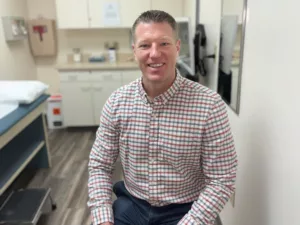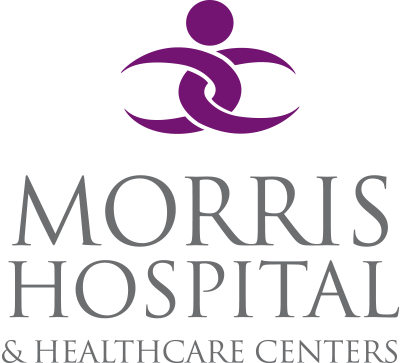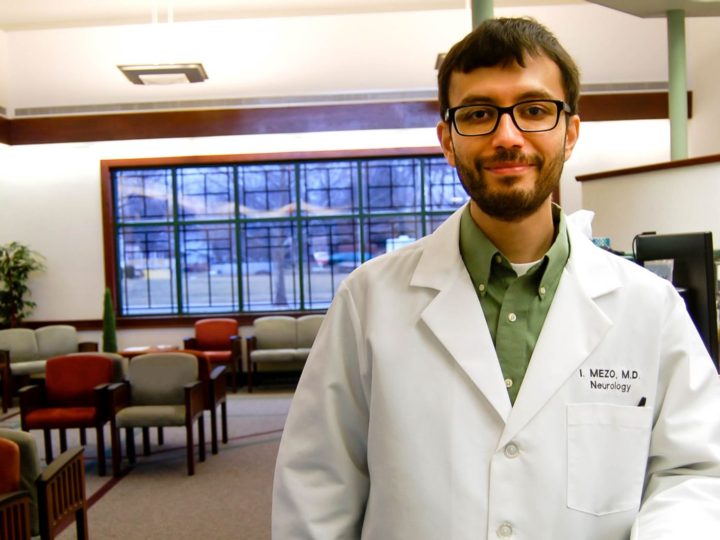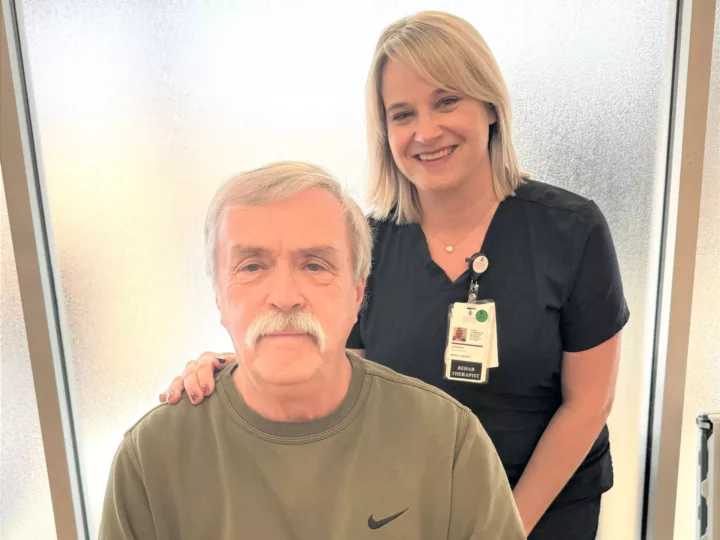Ask a Foot & Ankle Surgeon
 A board-certified, reconstructive foot and ankle surgeon with Morris Hospital Orthopedics & Sports Medicine, Dr. Kyle Pearson diagnoses and treats conditions affecting the lower extremities — specifically the foot and ankle — utilizing advanced, non-surgical and surgical treatment options.
A board-certified, reconstructive foot and ankle surgeon with Morris Hospital Orthopedics & Sports Medicine, Dr. Kyle Pearson diagnoses and treats conditions affecting the lower extremities — specifically the foot and ankle — utilizing advanced, non-surgical and surgical treatment options.
He received his Doctor of Podiatric Medicine degree from Des Moines University and then went on to complete his residency in reconstructive foot and ankle surgery in the Orthopedic Department at the renowned University of Pittsburgh Medical Center.
Patients can see Dr. Pearson for a wide range of conditions, including foot and ankle trauma, fractures, and sprains, ankle instability, tendon ruptures including Achilles, bunion, hammertoe, heel pain, plantar fasciitis, diabetic foot conditions/limb salvage, sports-related injuries, foot and ankle arthritic conditions, and flatfoot and cavus foot reconstruction. He is the only provider in the area to complete total ankle replacements.
Q: Why is it important to take good care of my feet and ankles?
Dr. Pearson: Often, people do not realize how important their feet and ankles are until they have problems. The foot and ankle are the foundation of the lower extremity, and when issues arise it can cause problems elsewhere within the body. Being proactive is one of the best things you can do to prevent further issues with your foot and ankle.
Q: What can I do to prevent foot or ankle problems?
Dr Pearson: Wearing proper shoe gear is one of the best things you can do, along with regular exercise and stretching. A proper fitting, hard sole tennis shoe with a wide toe box is recommended. It’s also important to have your foot measured by a professional at a shoe store to make sure you are purchasing the right size and fit. If you exercise regularly, work on uneven ground and/or hard surfaces such as concrete, you should change shoe gear on a regular basis. Also, discomfort of your feet or abnormal wear to the tread of the shoe could be signs of needing to purchase new shoe gear. I often see individuals who have trained improperly and increased activities too fast, which could result in stress fractures or tendon pathology. In addition, if you have diabetes mellitus or neuropathy, evaluating your feet on a regular basis is important.
Q: What should I do if I have foot or ankle pain?
Dr. Pearson: If you notice foot or ankle pain, the most important thing you can do is not ignore it. Pain is your body’s way of letting you know something is abnormal. Continued pain is a sign that you need to have your foot and ankle evaluated by a professional such as a foot and ankle surgeon. Being seen sooner than later will often prevent issues that could be easily solved with a nonsurgical modality from turning into something that may require more extensive treatment, including possible surgery.
Q: How does your advanced training make you well qualified to perform foot and ankle surgeries?
Dr. Pearson: During my time at the University of Pittsburgh Medical Center, I received extensive, well-rounded training in both non-surgical and surgical treatment of the lower extremity. Additionally, I am board-certified by the American Board of Foot and Ankle Surgeons in foot, as well as rear foot and ankle reconstructive surgery, which indicates that I have completed the highest level of requirements to treat pathology of the foot and ankle. By receiving this title and extensive training, I am able to provide advanced procedures for my patients — including total ankle replacements — and get them back to normal activity in a quicker fashion.
Q: How do I know when it’s time to see a foot & ankle surgeon?
Dr. Pearson: If you have a traumatic injury, I recommend seeking treatment as soon as possible. For other foot and ankle concerns, if you are continuing to have pain after resting, icing, taking oral anti-inflammatories, and activity modifications, you should seek further professional advice from a board-certified foot and ankle surgeon. I am fortunate to be able to provide a full service line of surgical and nonsurgical treatment options, including formal physical therapy, access to medical equipment, X-Ray, MRI and an outpatient surgical center within our Morris office location. Access to these additional services heightens my ability to provide a comprehensive treatment plan in order to get my patients active again as soon as safely possible.
Dr. Pearson has office locations in Morris, Ottawa, and Joliet. For more information, visit morrishospital.org/footandankle, or call 815-942-4875.




